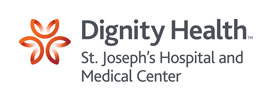An Investigation of the EndoStim® Lower Esophageal Sphincter (LES) Stimulation System for the Treatment of Reflux
| Status: | Recruiting |
|---|---|
| Conditions: | Gastroesophageal Reflux Disease |
| Therapuetic Areas: | Gastroenterology |
| Healthy: | No |
| Age Range: | 22 - 75 |
| Updated: | 11/14/2018 |
| Start Date: | May 2016 |
| End Date: | December 2021 |
| Contact: | Debbie Uribe |
| Email: | duribe@endostim.com |
A Multicenter, Randomized, Double-Blind, Sham-Controlled Clinical Investigation of the EndoStim® Lower Esophageal Sphincter (LES) Stimulation System for the Treatment of Gastroesophageal Reflux Disease (GERD)
The purpose of this investigation is to demonstrate the safety and effectiveness of Lower
Esophageal Sphincter (LES) Stimulation System in treating gastroesophageal reflux disease
(GERD). This investigation is a multicenter, randomized, double-blind, sham-controlled study.
After the implant procedure, subjects will be randomized to either the Treatment Group
(immediate stimulation) or Control Group (delayed stimulation) for six months followed by an
additional open-label phase in which all subjects will receive electrical stimulation.
Subjects continue on stimulation treatment in an extended open-label follow-up phase through
5 years post-stimulation.
Esophageal Sphincter (LES) Stimulation System in treating gastroesophageal reflux disease
(GERD). This investigation is a multicenter, randomized, double-blind, sham-controlled study.
After the implant procedure, subjects will be randomized to either the Treatment Group
(immediate stimulation) or Control Group (delayed stimulation) for six months followed by an
additional open-label phase in which all subjects will receive electrical stimulation.
Subjects continue on stimulation treatment in an extended open-label follow-up phase through
5 years post-stimulation.
The purpose of this investigation is to demonstrate the safety and effectiveness of the
EndoStim® Lower Esophageal Sphincter (LES) Stimulation System in the treatment of subjects
with gastroesophageal reflux disease (GERD). This investigation is a multicenter, randomized,
double-blind, sham-controlled clinical investigation. After the implant procedure, subjects
will be randomized to either the Treatment Group (immediate stimulation) or Control Group
(delayed stimulation) for a 6-month, double-blind phase followed by an additional open-label
treatment phase in which all subjects will receive electrical stimulation therapy for a total
of 12 months. Subjects continue on stimulation treatment and an extended open-label follow-up
phase includes an 18 month post-stimulation phone interview followed by annual visits through
5 years post-stimulation.
EndoStim® Lower Esophageal Sphincter (LES) Stimulation System in the treatment of subjects
with gastroesophageal reflux disease (GERD). This investigation is a multicenter, randomized,
double-blind, sham-controlled clinical investigation. After the implant procedure, subjects
will be randomized to either the Treatment Group (immediate stimulation) or Control Group
(delayed stimulation) for a 6-month, double-blind phase followed by an additional open-label
treatment phase in which all subjects will receive electrical stimulation therapy for a total
of 12 months. Subjects continue on stimulation treatment and an extended open-label follow-up
phase includes an 18 month post-stimulation phone interview followed by annual visits through
5 years post-stimulation.
Inclusion Criteria:
1. Able and willing to provide written informed consent
2. Able and willing to comply with required study procedures and follow-up schedule
3. 22 - 75 years of age at the time of informed consent
4. Documented symptoms of gastroesophageal reflux disease (GERD) for longer than 6 months
(regurgitation and/or heartburn which is defined as burning epigastric or substernal
pain which responds to acid neutralization or suppression) which requires daily use of
proton pump inhibitors (PPIs) or other anti-reflux drug therapy, who continue to have
symptoms despite maximum medical therapy or are "intolerant" -severe side-effects
(e.g. anaphylaxis or severe allergic reaction, recurrent C. difficile, severe
hypomagnesaemia) to one PPI or mild/moderate side effect (e.g. nausea, vomiting,
diarrhea or abdominal pain) to at least 2 PPIs of different chemical classes.
5. Symptomatic improvement on PPI therapy demonstrated by a composite GERD-health-related
quality of life (HRQL) score of ≥20 off PPI, and a ≥10 point improvement on PPI
compared to the off PPI composite GERD-HRQL score. Patients who meet the definition
above of PPI intolerant are not required to have ≥10 point improvement. The on-PPI
score to satisfy this criterion will be the score from the GERD-HRQL assessment
completed after resuming PPIs following the Baseline visit.
6. Excessive lower esophageal acid exposure during pH monitoring (defined as distal
esophageal pH < 4 for > 6.0% of the monitoring time) performed after at least 5 days
off of PPIs and at least 2 days off of H2 blockers. At least 18 hour of esophageal pH
recording will be considered adequate and inclusion will be based on the day (at least
18 hours of valid data) with the highest acid exposure percentage time.
7. Esophagitis ≤ Grade B (Los Angeles (LA) classification) as measured by upper endoscopy
off PPI and H2 blockers for 10-14 days
8. Esophageal body contraction amplitude > 30 mmHg for > 30% of swallows and > 30%
peristaltic contractions on HRM or ≥ 30% peristaltic contractions with DCI >450.
9. Suitable surgical candidate able to undergo general anesthesia and laparoscopic
surgery
Exclusion Criteria:
1. Previous EndoStim LES System implant and/or implant attempt
2. Previous surgery involving the gastroesophageal junction or the lead implant site,
such as a Nissen fundoplication
3. Previous endoscopic intervention for the treatment of GERD and/or Barrett's esophagus
4. Hiatal hernia larger than 3 cm as determined by endoscopy
5. History of gastroparesis
6. Any non-GERD esophageal motility disorders that in the opinion of investigator
precludes an anti-reflux procedure
7. History of or known esophageal stricture or significant esophageal anatomic
abnormalities (obstructive lesions, etc.)
8. Barrett's esophagus or any grade of dysplasia
9. Documented history of esophagitis Grade C or D (LA Classification)
10. History of suspected or confirmed esophageal or gastric cancer
11. Esophageal or gastric varices
12. Symptoms of dysphagia more than once per week every week within the last 3 months
13. Unable to tolerate withdrawal from H2 Blockers or PPI medications
14. Suspected or known allergies to titanium, platinum, iridium, stainless steel,
silicone, epoxy, or nylon
15. Body mass index (BMI) > 35 kg/m2
16. Any significant multisystem diseases
17. Autoimmune or a connective tissue disorder (scleroderma, dermatomyositis,
Calcinosis-Raynaud's-Esophagus Sclerodactyly Syndrome (CREST), Sjogren's Syndrome,
Sharp's Syndrome, etc.) requiring therapy in the preceding 2 years
18. Type 1 diabetes mellitus or uncontrolled Type 2 diabetes mellitus (T2DM) defined as
HbA1c > 9.5 in the previous 6 months or at screening/baseline
19. Significant cardiac arrhythmia or ectopy or significant cardiovascular disease (i.e.
unstable angina pectoris, hemodynamically significant valvular disease, severe
congestive heart failure), or any cardiac therapeutic intervention within the last 6
months.
20. Significant cerebrovascular event within the last 6 months
21. Existing implanted electrical stimulator (pacemaker, implantable cardioverter
defibrillator, deep brain stimulator (DBS), bone growth or pelvic floor stimulators,
drug pumps, etc.)
22. Female subject of child-bearing potential and is pregnant or nursing, or intends to
become pregnant during the trial period, who is not using a reliable form of birth
control
23. Currently enrolled in other potentially confounding research
24. Active infection as determined by the investigator
25. History of any malignancy, other than basal cell carcinoma, in the last 2 years
26. Life expectancy less than 3 years aa. Diagnosed major psychiatric disorder (bipolar,
schizophrenia, etc.) bb. Any condition that, at the discretion of the investigator or
sponsor, would interfere with accurate interpretation of the study endpoints or
preclude participation in the trial
We found this trial at
19
sites
1211 Medical Center Dr
Nashville, Tennessee 37232
Nashville, Tennessee 37232
(615) 322-5000

Principal Investigator: Michael Vaezi, MD, PhD
Phone: 615-322-4643
Vanderbilt Univ Med Ctr Vanderbilt University Medical Center (VUMC) is a comprehensive healthcare facility dedicated...
Click here to add this to my saved trials
3181 Southwest Sam Jackson Park Road
Portland, Oregon 97239
Portland, Oregon 97239
503 494-8311

Principal Investigator: John Hunter, MD
Phone: 503-494-4949
Oregon Health and Science University In 1887, the inaugural class of the University of Oregon...
Click here to add this to my saved trials
4202 E Fowler Ave
Tampa, Florida 33620
Tampa, Florida 33620
(813) 974-2011

Principal Investigator: Vic Velanovich, MD
Phone: 813-844-7948
University of South Florida The University of South Florida is a high-impact, global research university...
Click here to add this to my saved trials
Chapel Hill, North Carolina 27599
(919) 962-2211

Principal Investigator: Nicholas J Shaheen, MD, MPH
Phone: 919-966-4591
Univ of North Carolina Carolina’s vibrant people and programs attest to the University’s long-standing place...
Click here to add this to my saved trials
Charlotte, North Carolina 28203
Principal Investigator: Steven Teich, MD
Phone: 704-304-7109
Click here to add this to my saved trials
Cleveland, Ohio 44109
Principal Investigator: Ronnie Fass, MD
Phone: 216-778-5736
Click here to add this to my saved trials
Columbus, Ohio 43210
Principal Investigator: Kyle A. Perry, MD
Phone: 614-293-9964
Click here to add this to my saved trials
Englewood, Colorado 80113
Principal Investigator: Reginald CW Bell, MD
Phone: 303-788-1636
Click here to add this to my saved trials
49 Herestraat
Leuven, 3000
Leuven, 3000
Principal Investigator: Tim Vanuytsel, MD, PhD
Click here to add this to my saved trials
Click here to add this to my saved trials
630 W 168th St
New York, New York
New York, New York
212-305-2862

Principal Investigator: Marc Bessler, MD
Phone: 212-305-3009
Columbia University Medical Center Situated on a 20-acre campus in Northern Manhattan and accounting for...
Click here to add this to my saved trials
New York, New York 10021
Principal Investigator: Felice Schnoll-Sussman, MD
Phone: 212-746-4014
Click here to add this to my saved trials
350 W Thomas Rd
Phoenix, Arizona 85013
Phoenix, Arizona 85013
(602) 406-3000

Phone: 602-406-5853
St. Joseph's Hospital and Medical Center St. Joseph's is a nationally recognized center for quality...
Click here to add this to my saved trials
Pittsburgh, Pennsylvania 15224
Principal Investigator: Blair A. Jobe, MD
Phone: 412-578-1378
Click here to add this to my saved trials
Click here to add this to my saved trials
Richmond, Virginia 23298
(804) 828-0100

Principal Investigator: Guilherme M Campos, MD
Phone: 804-628-3753
Virginia Commonwealth University Since our founding as a medical school in 1838, Virginia Commonwealth University...
Click here to add this to my saved trials
300 University Boulevard
Round Rock, Texas 78665
Round Rock, Texas 78665
Principal Investigator: F. Paul Buckley, MD
Phone: 512-509-4272
Click here to add this to my saved trials
Click here to add this to my saved trials
291 Campus Drive
Stanford, California 94305
Stanford, California 94305
Principal Investigator: John Clarke, MD
Phone: 650-721-8436
Click here to add this to my saved trials